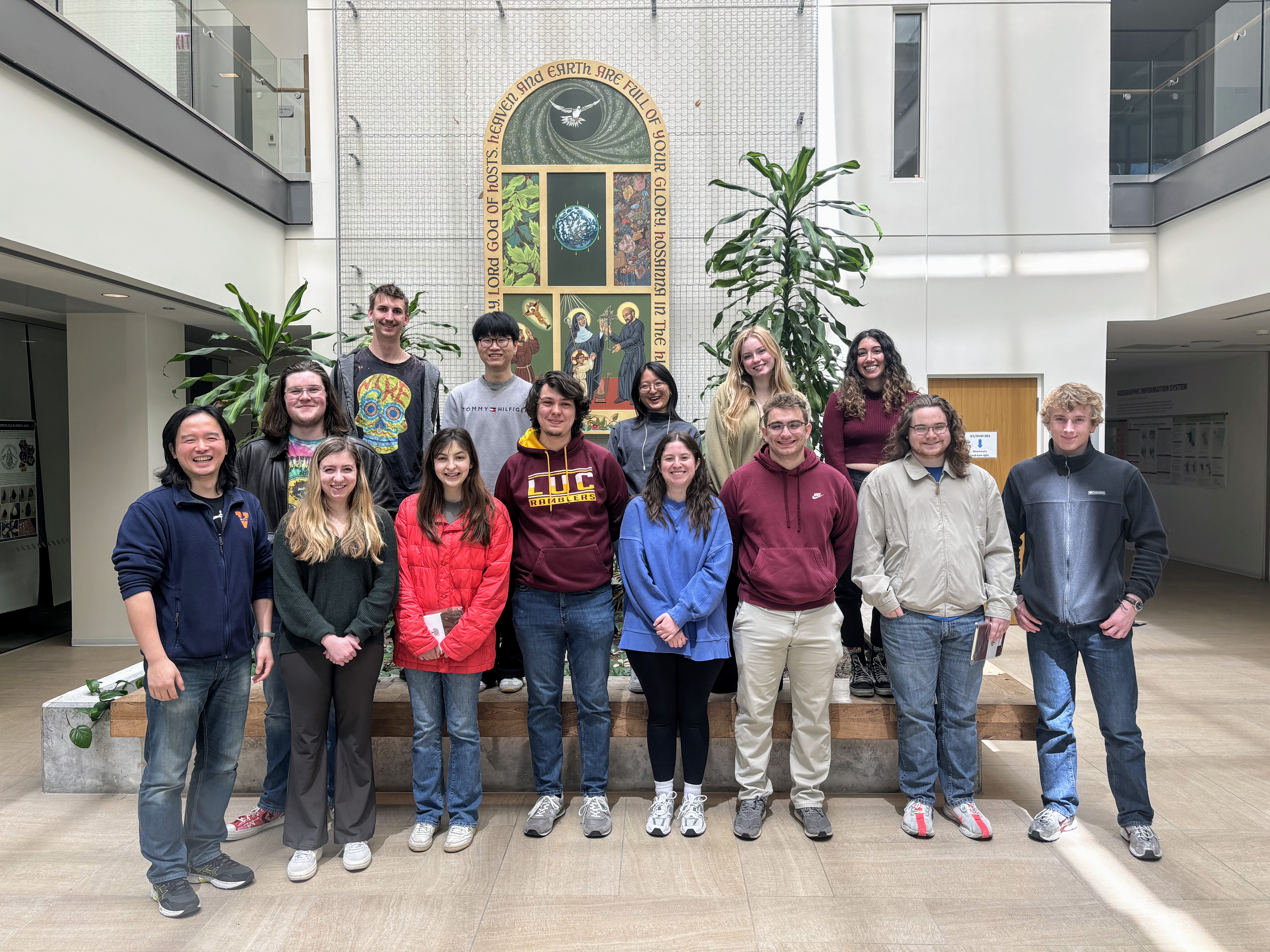Interested in doing math research with me? I always welcome students with a few key qualities: curiosity, critical thinking, persistence, and attention to details.
Your current stage of mathematical study comes next; I enjoy working with students at different levels.
Some useful reads before considering to do math research
Over the years, I’ve had many conversations with students about what is research in math and why they should consider (not) doing it. If you have the same questions, the links below provide some very good insights which I could not have stated better. You should read them as a step 0.
- What’s Research? A short answer from Purdue.
- What’s Math Research? A short answer from William & Mary. Here is a more detailed answer from AMS.
- What’s Undergraduate research in math? A very interesting discussion on stackexchange.
Research Opportunities at Loyola
Due to the theoretical nature, there are several different ways to do research in math, including research projects, independent study (courses), reading courses.
-
Research Projects
Loyola has established programs that aim on promoting undergraduate research. Most of them provide both a stipend and research funds. While some are designed for regular semesters, others are designated for summers. Check out the LUROP website and read the website through. It contains a lot of useful information. The annual application deadline is March 1. Among these fellowships, the ones students can apply for with math projects are
- USRE (first- and second-year only)
- WISER (female students only)
- Carbon (second-year only)
- Mulcahy (any student; more suitable for research experienced students)
- Provost (any student; more suitable for research experienced students)
The Department of Mathematics and Statistics also supports a few projects for advanced students over the Rataj Fellowship. Its application is administered by the department and often opens towards the end of Spring semesters. Contact the department chair for more information.
-
Seminar Courses
MATH 298 (1 credit) and MATH 390 (2 credits) run concurrently every Spring and are dedicated to undergraduate research work. They are both approved Engaged Learning courses with 3 credits togather and meet the Loyola’s EL requirement. See examples of their syllabi here. They cover the common skill sets needed for math research, along with the value of a collaborative environment and peer support, while the research itself is done with your research mentor.
-
Independent Study Courses
Math 395 (and other similar courses offered by other departments). It can be referred as Capstone Project in other schools. It is for advanced students who are interested in learning beyond standard curricular offered at Loyola. Often, the student decides the topic and then find a faculty mentor. Ideally, it is built upon an existing research relationship, but it’s not mandatory. I’ve mentored:
- COMP 495: PDE Methods in Image Processing (Spring 2025)
-
Informal Reading Courses
They won’t count for any course credit. The topics should be about advanced materials that are not taught in regular courses. A few that I have mentored at Loyola:
Working with me
If you are still interested this far, feel free to contact me with questions, either via an email or stop by during my open office hours.
Past and current students I mentored / am mentoring:

- Charles Clevenger, Summer 2025 - present
- Luke Nowlis, Summer 2025 - present
- Jake Lee, Summer 2025 - present
- Merisa Kraja, Spring 2025 - present
- Daleney Rager, Fall 2024 - present
- Avery Boland, Summer 2024 - present
- Amanda Newton: Summer 2023 - present
- Walter McGavran, Fall 2024 - Spring 2025
- Chloe Ramirez, Summer 2024 - Spring 2025 (MS student at University of Texas at Austin)
- Babel Barm, Summer 2024
- Joey Dingillo, Fall 2023 - Spring 2025 (PhD student in Mathematics at U. Houston)
- Miguel Diaz: Summer 2023
- Elizabeth Joseph: Summer 2023 (MS student in Engineering at Washington University in Saint Louis)
- Cecily Bartsch: Summer 2023 - Spring 2025 (PhD student in Mathematics at U. Wisconsin, Madison; DoD NDSEG Fellowship)
They have presented their work in various places, including
- URES (annually held by Loyola, often in early-mid April)
- CAURS (annually, often in early-mid April)
- Joint Math Meetings (annually, often in early January; largest gathering of mathematicians in the United States, and the largest annual meeting of mathematicians in the world)
- Departmental (math & stat) Student Colloquium (often held in the Fall)
- The AWM Research Symposium (biennial)
External Opportunities
Several of my past students have successfully obtained Summer REUs. Here are a few places as examples:
You can find more information here.